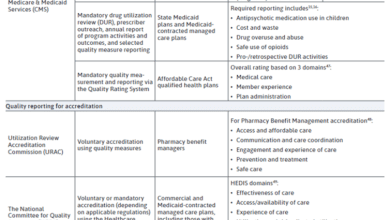SMALL GROUP INSURANCE REQUIREMENTS FOR EMPLOYERS – JC Lewis Insurance
It’s been almost 13 years since the inception of the Affordable Care Act (ACA), formally known as the Patient Protection and Affordable Care Act and informally referred to as Obamacare.
A historic U.S. federal statute that was enacted by the 111th United States Congress and signed into law by President Barack Obama on March 23, 2010, it has changed healthcare coverage in several respects here in the U.S.
Along with the Health Care and Education Reconciliation Act of 2010 amendment, the ACA represents the healthcare system’s most significant regulatory overhaul and expansion of coverage since the enactment of Medicare and Medicaid in 1965
Over a decade later, business owners have become quite a bit more familiar with ins and outs of the ACA’s requirements for employers. In addition, in that interim many states have added to or made changes to their particular approach to affordable health care.
However, new business owners and smaller firms may still have many questions about what is and what is not required of them.
WHAT IS THE ACA AND HOW IS SMALL GROUP INSURANCE IMPACTED?
Perhaps the best way to define the Affordable Care Act is to simply defer to the description provided by the U.S. Department of Health & Human Services website entry:
“The Patient Protection and Affordable Care Act, referred to as the Affordable Care Act or “ACA” for short, is the comprehensive health care reform law enacted in March 2010.
The law has 3 primary goals:
- Make affordable health insurance available to more people. The law provides consumers with subsidies (“premium tax credits”) that lower costs for households with incomes between 100% and 400% of the federal poverty level (FPL).
- Expand the Medicaid program to cover all adults with income below 138% of the FPL. Not all states have expanded their Medicaid programs.
- Support innovative medical care delivery methods designed to lower the costs of health care generally.”
Of particular relevance to business owners who are employers is what is commonly known as the employer mandate.
Simply put, this requirement mandates that employers with 50 or more full-time workers or equivalents (FTEs) must offer health insurance that is affordable and provides minimum value to 95 percent of their full-time employees and their children up to the end of the month in which they turn age 26 or be subject to penalties.
However, for those employers with 49 or fewer full-time workers or equivalents are not required to offer their workers health insurance options. In fact, as it is stated on the HealthCare.gov website,
“No small employer, generally those with fewer than 50 full-time and full-time equivalent employees, is subject to the Employer Shared Responsibility Payment, regardless of whether they offer health insurance to their employees.”
Nonetheless, many so-called “small businesses” desire to make health coverage a benefit offering despite this not being a requirement.
To that end, the ACA established the Small Business Health Options Program (SHOP) for small employers who want to provide health and dental coverage to their employees.
SMALL BUSINESS OWNERS AND SMALL GROUP HEALTH COVERAGE
Generally speaking, most all small businesses (and non-profits) with fewer than 50 employees can use the Small Business Health Options Program, or SHOP, to purchase health coverage.
Among other benefits, enrolling in SHOP insurance may allow you to get the Small Business Health Care Tax Credit. Your company may qualify if you have fewer than 25 full-time equivalent (FTE) employees making an average annual salary of about $56,000 or less.
So, what are the requirements for enrolling your small business in SHOP?
To enroll, purchase, and offer Small Business Health Options Program (SHOP) health insurance as well as dental insurance to your employees, your business or non-profit organization must meet these four requirements:
- Have 1-50 full-time equivalent employees (FTEs)
To qualify for SHOP, you must have at least one FTE employee other than owners, spouses, and family members of owners, and partners.
- Offer coverage to all full-time employees
Full-time employees generally work 30 or more hours per week. Employees averaging less than 30 hours per week are considered part-time. You don’t have to offer coverage to part-time or seasonal workers but you can offer coverage to part-time employees if you choose.
- Enroll at least 70 percent of the employees you offer insurance to
Some states have different minimum participation requirements (MPR). You don’t have to meet the minimum participation requirement between November 15 and December 15, or Open Enrollment, during any year. Note that employees with other health coverage are not counted as “rejecting” your health coverage offer.
- Have an office or employee work site within the state whose SHOP you want to use
One exception to these requirements is the number of employees that are counted to designate ”small group plan” by individual states. Currently, California, Colorado, New York, and Vermont have mandated that small group plans are defined as group insurance arrangements covering 100 or fewer enrollees.
YOUR SMALL GROUP HEALTH COVERAGE EXPERTS
J.C. Lewis Insurance has been a local, family-owned firm based in Sonoma County since 1979, and our expert brokers offer small business insurance plans. Our mission has always been to provide expert advice and assistance to small business owners when it comes to group health insurance and group medical plans.
In addition, our firm only provides small business health insurance plans from the leading health insurance carriers that are licensed to do business in states that we operate in.
Not only are we a team of experienced, professional brokers, but we are also licensed and certified by each of these insurance carriers to offer coverage to small group employers in addition to Medicare supplemental and prescription drug plans for seniors.
When you’re thinking of purchasing health insurance for yourself and your employees, and possibly vision and dental coverage, you will likely have several questions and concerns.
At J.C. Lewis Insurance Services, were happy to answer all your questions about health insurance coverage. And you can be confident that we will help you find the right solution.





